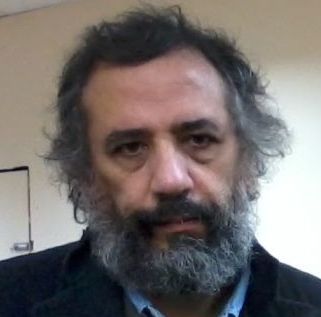

 By VennerRoad, 14th Dec 2016
By VennerRoad, 14th Dec 2016
The BBC has just rubber stamped the innocence of Timothy Evans for the Nth time. People in the know disagree.

John Reginald Halliday Christie
The BBC has just broadcast a three part dramatisation of the notorious case of Evans and Christie. Very briefly, for those not au fait with this terrible affair, in 1949, Timothy Evans, the upstairs tenant at 10 Rillington Place, was charged with the double murder of his wife and baby daughter. After telling the police one pack of lies after another, he confessed freely and voluntarily to the crime. Tried only for the baby’s murder, he was convicted, sentenced to death, and hanged in short order.
Evans had at one point accused his neighbour John Reginald Halliday Christie of the murders, and apart from Evans himself, Christie was the star witness for the prosecution. Three years later, Christie “lost it” murdering his wife Ethel and then three women he had lured back to the premises. After the bodies were found by a new tenant – to whom he had sub-let illegally – Christie was found wandering the streets of the capital like a lost soul. An intensive search of the entire premises turned up the bodies of two more women in the back garden; Christie had murdered them during the Second World War, so the obvious conclusion was that he had murdered Mrs Evans and the baby as well, and that an innocent man had been hanged.
Obvious though this may be, life is often not like that. After the conviction of Winston Silcott for the murder of Keith Blakelock it was revealed that he had already been convicted of murdering a man named Anthony Smith. A blanket ban had been imposed on the reporting of the earlier case to ensure Silcott received a fair trial, but when that ban was lifted it was “obvious” that he had murdered Blakelock too. We know now this was not the case, and that not only had the police investigating the Blakelock murder lied systematically, they had also manufactured incriminating evidence.
The same cannot be said for the officers who investigated the murders of Beryl Evans and baby Geraldine, indeed they went to great lengths both to be fair to Evans and to investigate Christie, but one would never realise that from this dramatisation. For one thing, they lured Christie away from the house on the pretext of taking a statement while his wife was questioned independently. They also searched his flat for incriminating evidence, but the only thing they found was a syringe Ethel Christie used for women’s issues. So what did the BBC get wrong?

Double killer Timothy Evans
Obviously in a case as complex as this a great deal had to be omitted in a mere three hours; we don’t actually see the murder of Mrs Evans although we are left in no doubt that Christie was responsible. First, Evans did not have an impeccable English accent, and Beryl was not the good time girl she was portrayed here. Indeed she was quite a catch for a man like Evans, and her married life was both short and miserable. Evans had also been having it off with her friend Lucy Endecott, although that is not the impression given here.
As Beryl had been strangled, it is inconceivable that even a man as dumb as Evans was alleged to be would have thought she had died from complications during an illegal abortion, he would surely have noticed the marks on her neck, but Evans was not so dumb at all, he was certainly not illiterate as usually claimed; his apparent low IQ was due to his missing a lot of schooling when young due to a childhood illness.
There is no mention here of Evans selling his furniture – which was not his to sell – nor of his living it up, or flogging his wife’s wedding ring in Merthyr. When the police found the bodies he was brought back to London by train, and not confronted at Merthyr as happened here. Broadly speaking there are three possible scenarios for what actually happened: Evans was totally innocent as portrayed here; Evans was entirely guilty and Christie his mark; or a third, that Evans strangled Beryl during an argument, turned to Christie for help, and perhaps fearing the bodies in the garden would be discovered, Christie helped him, this was the story told by Donald Hume, whom Evans met on remand in Brixton Prison.
Much more could be written here, but anyone who wants to get the full picture should read the magnificent biography of Christie by the archivist and historian Jonathan Oates, who has also sounded off about the accuracy or lack thereof of the latest dramatisation in the local press. His letter, which appears in the Ealing Gazette of December 9 under the heading Usual Christie myth aired again contains scathing criticisms of what might rightly be called a work of fiction.
Dr Oates is of the opinion that Evans and Evans alone was responsible; difficult though that is to credit, if the reader can accept the coincidence of two murderers living under the same roof, there really is not much more to be said about the innocence of Timothy Evans.
To Wikinut Articles Page